Audio available in app
Traditional morality is based on societal norms and arbitrary distinctions from "summary" of Beyond Good & Evil by Friedrich Nietzsche
Traditional morality, with its roots in societal norms and arbitrary distinctions, has long been the guiding force for human behavior. It serves as a set of rules and principles that dictate what is considered right and wrong within a given society. These norms are often passed down from generation to generation, ingrained in the collective consciousness of a culture. However, Nietzsche challenges the validity and usefulness of such a moral framework, arguing that it is limited and constraining. According to Nietzsche, traditional morality is based on the idea of good versus evil, where certain actions are deemed moral or immoral based on their alignment with these binary categories. This simplistic view, he argues, fails to account for the complexities of human nature and experience. By reducing morality to a set of black-and-white distinctions, society stifles individuality and creativity, forcing individuals to conform to pre-established standards. Moreover, Nietzsche contends that traditional morality is often used as a tool for social control, with those in power dictating the rules to maintain their authority. By enforcing arbitrary distinctions between right and wrong, the ruling class manipulates the masses into compliance, perpetuating a system of oppression and inequality. This manipulation serves to uphold the status quo, ensuring that those in power remain unchallenged and unthreatened. In contrast to traditional morality, Nietzsche advocates for a more nuanced and self-directed approach to ethics. He calls for individuals to question and challenge the existing moral framework, to think for themselves and determine their own values based on their unique experiences and perspectives. By breaking free from the constraints of societal norms and arbitrary distinctions, individuals can achieve a greater sense of authenticity and autonomy.- Nietzsche's critique of traditional morality is a call to arms for individuals to break free from the shackles of societal expectations and think independently about what is truly good and right. By challenging the status quo and embracing a more fluid and dynamic ethical framework, individuals can pave the way for a more authentic and fulfilling existence.
Similar Posts
Ego mediates between id and superego
In our mental life there are three provinces, the id, the ego, and the super-ego, which are in eternal strife with one another....

The concept of God as the source of morality is a fallacy
God as the source of morality is a fallacy. This idea has been ingrained in society for centuries, with the belief that moral v...

The dichotomy of good and evil is simplistic and outdated
The simplistic notion of good and evil has long been ingrained in our minds, dictating our moral judgments and actions. It has ...
Public opinion can be volatile and easily swayed
The prevailing sentiment within a society is a complex and ever-changing phenomenon. It is not a static entity, but rather a dy...

The mind is like an elephant and rider, with emotions being the elephant and reason being the rider
Imagine your mind as a rider sitting atop an elephant. The rider represents your conscious reasoning and decision-making abilit...

Selfcommand is necessary to curb selfish impulses
The power of self-command is essential in restraining our selfish impulses. Within ourselves, we possess the ability to regulat...
Moral pluralism enhances societal wellbeing
Moral pluralism is like a symphony with multiple instruments playing in harmony, each contributing its unique sound to create a...

